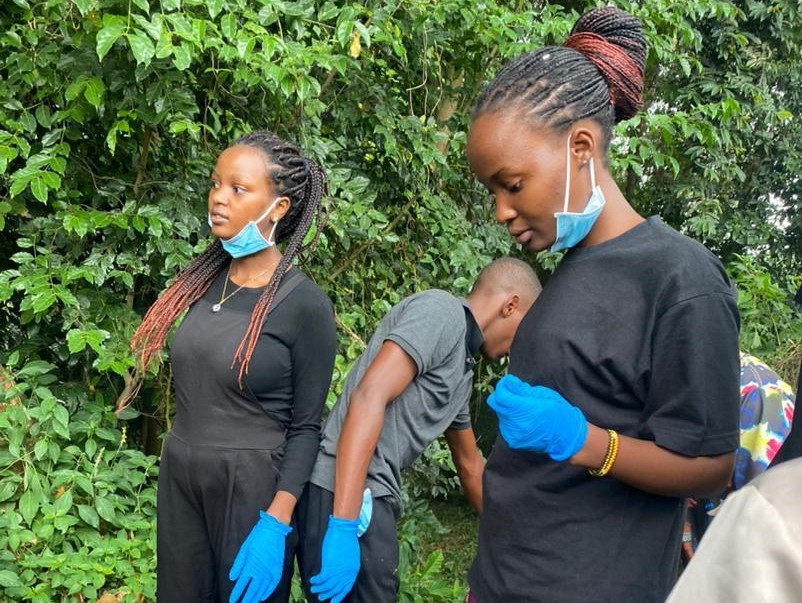Wenepaida Hellen
Nkumba University’s Main Campus is making remarkable progress in sustainability, thanks to an innovative student-led initiative that transforms waste materials into captivating art pieces.
Launched last semester at the School of Commercial Industrial Art and Design, the project involves collecting discarded items such as plastic bottles, straws, and cardboard from around the campus, and creatively repurposing them into unique works of art.
The initiative stems from a commitment to reducing waste and fostering environmental awareness among students and staff.
Bangasi Margaret Josephe, a third-year Vocational Art (Commercial Arts) student and one of the project’s leaders, explained the motivation behind it: “We wanted to find a creative way to address the growing waste problem on campus while creating something beautiful and functional from discarded materials.”
The results have been impressive, showcasing the artistic potential of recycling. Students have crafted items such as flower vases from plastic bottles and mats woven from straws, blending creativity with environmental responsibility.
Muwuria Elvis, another art student involved in the project, reflected on its success: “The project has exceeded our expectations. Not only have we created beautiful art, but we’ve also made a tangible impact on our environment. It’s a win-win.”
Beyond the artistic achievements, the initiative has visibly improved campus cleanliness. Bangasi Margaret remarked, “There’s been a clear reduction in waste around campus, and it’s heartening to see how our efforts have helped keep the environment cleaner.”
Plastic waste management in Uganda is a growing concern, with efforts being made to address the environmental challenges posed by improper disposal and pollution.
Uganda generates approximately 600 tonnes of plastic waste daily, with only a fraction of this being collected and recycled. The remaining waste often ends up in landfills, water bodies, or is burned, contributing to pollution and health risks.
Several initiatives are underway to tackle this issue. The National Environment Management Authority (NEMA) has implemented strategies to promote plastic circularity, focusing on reuse, recycling, and the development of sustainable alternatives. Recycling efforts, such as the establishment of the Plastic Recycling Industry (PRI) in collaboration with organizations like GIZ and Coca-Cola, aim to boost the collection and processing of plastic waste. However, challenges such as limited infrastructure, lack of awareness, and the high cost of transportation for exporting recycled materials persist.
Informal waste collectors play a significant role in managing plastic waste, especially in urban areas like Gulu City. These individuals collect discarded plastic items, which are then sold to middlemen for recycling. Despite their contributions, waste collectors often face stigma, poor working conditions, and low wages.
Efforts to raise awareness about proper plastic disposal and the environmental impact of plastic pollution are ongoing. NEMA has conducted studies highlighting issues such as fish feeding on plastics in polluted lakes, which poses risks to both aquatic life and human health. Public sensitization campaigns and events like World Environment Day aim to unite policymakers, manufacturers, and communities in the fight against plastic pollution.
While progress is being made, Uganda still faces significant challenges in achieving effective plastic waste management. Continued investment in infrastructure, education, and sustainable practices will be crucial in addressing this pressing issue. Let me know if you’d like to explore specific aspects further.





















Discussion about this post